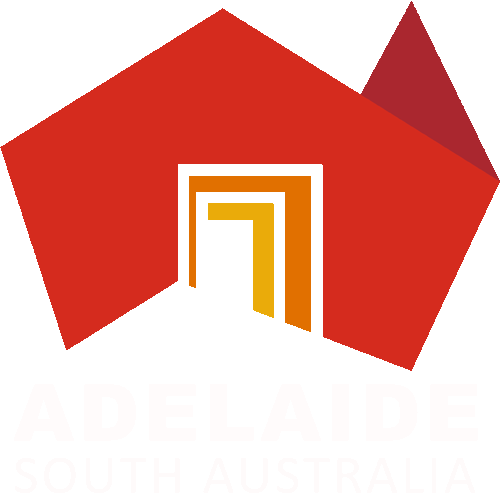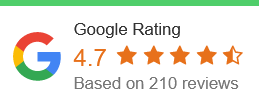
Living in Australia
Reasons to Choose Australia as your destination to settle
Weather in Australia
Australia's climate varies greatly throughout the eight states and territories; there are four seasons across most of the country.
Australia's seasons are at opposite times to those in the northern hemisphere.
- December to February is Summer;
- March to May is Autumn;
- June to August is Winter; and
- September to November is Spring.


Better working conditions in Australia
Besides the pay and job opportunities, the great working environment is a huge benefit of working in Australia. Generally, Australia provides a great work/life balance – 8 hours a day and 5 days a week.
Australian working conditions are regulated by federal legislation, workplace agreements, awards, and contracts. The Australian Fair Pay and Conditions Standard protects the minimum wage, maximum work hours and minimum leave entitlements of all employees in Australia.
Better Living Standards
Australia has one of the highest standards of living in the world. Excellent job prospects, a strong economy and world-class financial services make it a desirable place to live and work.
The Cost of Living in Australia
People residing in Australia enjoy a high standard of living, and the cost of living reflects this.
The cost of living does vary throughout the country, mostly affected by the price of accommodation. The states’ capital cities will all command higher rental prices than more rural locations, and of the capitals, Sydney is the most expensive. It is not uncommon for a person in Sydney to pay more than double the rent of someone living in Hobart for equivalent accommodation.
Cost of Living Calculator
For guidance purposes, you can use the calculator provided by insiderguides.com.au
Australian Government also provides the Education and Living Costs in Australia


One of the best healthcare systems
Australia’s Healthcare System is one of the most comprehensive in the world; offering a range of services from general and preventative health, through to treating more complex conditions, that may need a specialist, or hospital care.
The public system is made up of number of components, including public hospitals, community-based services, and affiliated health organisations largely owned and governed by state and territory governments. The Australian public (Permanent residents and citizens) accesses care within the public health system for free or at a lower cost through Medicare (funded by tax).
Better Education System
The Australian education system is considered one of the best education systems in the world, for both domestic and international students. It enjoys high standards, a comprehensive curriculum, and highly qualified teachers.
Public schooling: Government schools are almost free for Australian citizens and permanent residents.
Australia has top-ranked institutions, globally recognized qualifications and an abundance of scholarships.


Rich and Diverse Cultures
This rich, cultural diversity is one of our greatest strengths. It is central to our national identity.
In 1975, the Racial Discrimination Act came into force, making discrimination in different parts of public life against the law. The Act continues to send a strong message about our common commitment to racial equality and the importance of a fair go for all.
Most new migrants say they feel a strong sense of belonging to Australia and that this feeling deepens over time. Most Australians (86 per cent) support action to tackle racism in Australia.
Facts about cultural diversity in Australia
- One in four of Australia’s 25 million people were born overseas
- 46 per cent have at least one parent who was born overseas, and nearly 20 per cent of Australians speak a language other than English at home.
- In 2013, overseas migration represented 60 per cent of Australia’s population growth in the year.
- People born in the United Kingdom continue to be the largest group of overseas-born residents (5.3 per cent), followed by New Zealand (2.6 per cent), China (1.8 per cent), India (1.6 per cent) and Vietnam (0.9 per cent).
- Migrants make an enormous contribution to Australia’s economy and provide an estimated fiscal benefit of over 10 billion dollars in their first ten years of settlement.
- In 2010-11, international education activity contributed $16.3 billion to the Australian economy.
Social Security in Australia
Social security in Australia refers to a system of social welfare payments provided by Australian Government to eligible Australian citizens and permanent residents. Most of these payments are means-tested.
A means test is a determination of whether an individual or family is eligible for government assistance or welfare, based upon whether the individual or family possesses the means to do without that help.
Payments under the Social Security Act and the Student Assistance Act (For Eligible Citizens and Permanent Residents)
- ABSTUDY – offers a range of allowances to assist Indigenous students and New Apprentices.
- Age Pension – for people planning for retirement or who are already retired aged 65 years and over.
- Assistance for Isolated Children – for families with a child who cannot attend school locally because of distance or special needs.
- Austudy Payment – for full-time students and New Apprentices aged 25 years or over.
- Carer Allowance – for people who care for minors 16–17 and adults over 18 years with a disability.
- Carer Allowance (Child) – for people who care for a child under 16 years with a disability.
- Carer Payment – for people who provide full-time care for someone with a disability
- Disability Support Pension – for people unable to work for 2 years due to illness, injury or disability.
- Double Orphan Pension – for people who are raising children who have lost both parents.
- Maternity Payment – for help with those extra costs after the birth of a new baby.
- JobSeeker Payment – for people who are looking for employment.
- Parenting Payment – for parents or guardians to help with the cost of raising children under 6 for partnered parents and under 8 for sole parents.
- Pensioner Education Supplement – for people on pensions with education expenses.
- Special Benefit – for people who are in financial hardship, have no way of supporting themselves and are not entitled to another payment (normally due to residency requirements)
- Youth Allowance – for full-time students or New Apprentices aged 15 (under some circumstances) 16 to 24 and people aged under 21 who are undertaking job search or a combination of approved activities.


Other resources for new migrants
Requirements to Open a Bank Account as a Non-Resident
It is possible to open a bank account online in Australia as a non-resident from overseas. The top banks in Australia (see below) allow foreigners to open a checking account from abroad via the web before they even relocate.
Useful Links to open a Bank account as a Non-Resident
Tax File Number (TFN).
TFN is required when seeking to work, as employers will need to deduct tax and pay against your TFN. Check Australian Taxation Office



